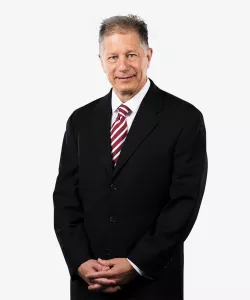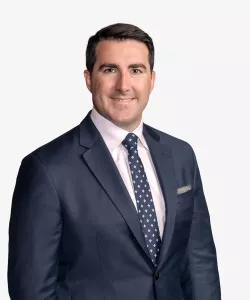Recent Case Developments Indicate Increased Judicial Scrutiny on China Initiative Prosecutions
In November 2018, then-Attorney General Jeff Sessions launched the Department of Justice’s (DOJ) China Initiative, to prevent, combat, and prosecute theft of intellectual property, technology, trade secrets, and other confidential and proprietary information.[1]
Since then, DOJ has launched a number of investigations and prosecutions, but rather than charging economic espionage, theft of trade secrets, or violations of the Foreign Corrupt Practices Act or the Foreign Agent Registration Act, DOJ has frequently resorted to charging Chinese professors, academics, researchers, and students for their alleged failure to disclose their connection(s) to China, including ties to Chinese academic institutions and participation in Chinese talent programs. DOJ charges wire fraud and making false statements in order to paint these individuals’ actions as criminal. As a result, DOJ has faced criticism for these prosecutions, and has recently encountered a number of challenges and setbacks in prosecuting these cases.
Earlier on September 15, 2021, The Washington Post published an in-depth article covering some of these issues, including a focus on the case of Dr. Qing Wang, an Arent Fox client whose case was dropped by DOJ without ever reaching a grand jury.[2]
The Failed Prosecution of Dr. Anming Hu
In February 2020, Dr. Anming Hu, a professor in the Mechanical, Aerospace, and Biomedical Engineering Department at the University of Tennessee, Knoxville (UT), was indicted on three counts of wire fraud and three counts of making false statements.[3] The indictment alleged that Dr. Hu engaged in a scheme to defraud the National Aeronautics and Space Administration (NASA) by failing to disclose his affiliation with the Beijing University of Technology (BJUT), in violation of federal law prohibiting NASA from using appropriated funds on projects which involve collaboration with China or Chinese universities.
Evidence presented at trial revealed that Dr. Hu filed conflict of interest disclosure forms with UT that listed his collaborations with Chinese researchers, work with Chinese students, and research papers describing him as a professor with both UT and BJUT. For example, in connection with a 2016 NASA grant proposal, Dr. Hu included a letter with a masthead in Chinese that referred to long-term collaboration with a Chinese researcher. But after Dr. Hu was informed by the NASA contractor that he could not collaborate with this Chinese researcher, Dr. Hu removed him from the proposed project. After the jury failed to reach a verdict, a mistrial was declared. One juror described the prosecution as “the most ridiculous case.”[4] Although DOJ subsequently announced it would retry Dr. Hu, Judge Thomas Varlan granted the defense’s Motion for Acquittal this past week, acquitting Dr. Hu of all charges.
In his written decision, Judge Varlan determined that the government presented no evidence that Dr. Hu defrauded NASA because, he ruled, NASA had received the benefit of the services promised by Dr. Hu in his research grant proposals, regardless of any undisclosed connections Dr. Hu had with China. United States v. Hu, No. 3:20-cr-21 (E.D. Tenn. Sept. 9, 2021), ECF No. 141, at 39-40. The opinion drew a vital distinction between defrauding — and thus depriving another of money or property — with mere deceit, which does not result in any harm. Id. at 30-31. In essence, one cannot be guilty of wire fraud unless the defendant’s actions affect the very “nature of the bargain” at issue. Id. at 32, 38 (quoting United States v. Takhalov, 827 F.3d 1307, 1313 (11th Cir. 2016) (“[D]eceiving is a necessary condition of defrauding but not a sufficient one. Put another way, one who defrauds always deceives, but one can deceive without defrauding.”)). Here, the court found the evidence presented at trial did not establish that Dr. Hu failed to provide the promised work product to NASA, and, therefore, NASA received the benefit of its bargain with Dr. Hu. Id. at 40. Similarly, the court dismissed the false statement charges, reasoning that the evidence was insufficient to prove knowledge by Dr. Hu that his faculty position at BJUT ran afoul of NASA policy. Id. at 51-52. The government has 30 days to appeal Judge Varlan’s ruling.
Government Ordered to Specify Allegations Against MIT Professor
Earlier this year, Professor Gang Chen, a researcher and member of the faculty at the Massachusetts Institute of Technology, was charged with two counts of wire fraud, one count of failure to file a foreign bank account report, and one count of making a false statement in a tax return. In its indictment of Professor Chen, the government alleges that he made seven material omissions and one false statement “among other things” and “among other matters” in a government grant proposal to the Department of Energy.
Last week, District Judge Patti Saris recognized the ambiguity in the government’s allegations, granting Professor Chen’s request for a bill of particulars with respect to the two wire fraud counts, and ordering the government to submit a written statement to confirm its representation during oral argument that it will only rely on the seven omissions and specific false statement identified with specificity in the Indictment. United States v. Gang Chen, No. 21-cr-10018-PBS (D. Mass. Sept. 10, 2021), ECF No. 75, at 3.
Other Recent Dismissals
As mentioned above, in a prosecution based on a theory similar to that of Dr. Hu, counsel at Arent Fox recently secured the dismissal of wire fraud and false statement charges against Dr. Qing Wang, a former researcher at the Cleveland Clinic, whose institution had reportedly received $3.6 million in research grants from the National Institutes of Health (“NIH”). According to public records, the criminal complaint against Dr. Wang accused him of intentionally omitting his connection with the Huazhong University of Science and Technology, where he served as Dean of the College of Life Sciences and Technology. In July 2021, after repeatedly seeking (and obtaining) extensions of time to present the case to a grand jury, the government voluntarily dismissed the proceedings against Dr. Wang.
Additionally, over the summer of 2021, the government voluntarily dismissed cases against Chinese researchers and students at Stanford University, University of California San Francisco, University of California Davis, UCLA, and Indiana University Bloomington, who were accused of failing to disclose ties to the People’s Liberation Army of the People’s Republic of China, citing “recent developments” in other cases.[5]
Looking Forward
These recent judicial developments, which appear to be the beginnings of increased scrutiny, hold the government to account in its specificity of charging documents and the requisite level of proof needed at trial. Put more broadly, the decisions seem to signal growing judicial skepticism of DOJ’s broad application of fraud statutes in prosecutions brought under the China Initiative for failure to disclose connections to China.
[1] DOJ’s press release regarding Information About the Department of Justice’s China Initiative and Compilation of China-Related Prosecutions Since 2018 can be found here.
[2] See the article published in The Washington Post here.
[3] News outlets reported that according to an FBI agent’s testimony, the FBI falsely accused Dr. Hu of being an operative for the Chinese military when the FBI met with Dr. Hu’s bosses at UT prior to his termination. Subsequently, the FBI asked Dr. Hu to spy on behalf of the US government and put him on a no-fly list. The FBI then continued to surveil and follow Dr. Hu and his son, a freshman at UT, before ultimately charging Dr. Hu with wire fraud and making false statements. Notably, however, there was no allegation that Dr. Hu was spying for China or used any information to aid or benefit the Chinese government.
[4] See Mara Hvistendahl, “Ridiculous Case”: Juror Criticizes DOJ For Charging Scientist With Hiding Ties to China, available here.
[5]See Shawna Chen, DOJ Drops Cases Against 5 Chinese Researchers, available here.
Contacts
- Related Practices


